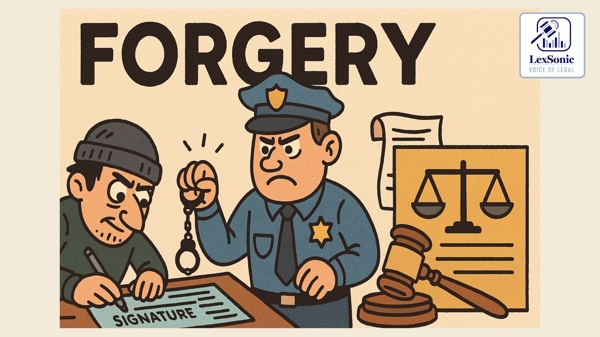Supreme Court Overturns High Court's Quashing of FIR in Forged Lease Deed Cheating Case.
21 May 2025
FIR >> Criminal Law | Forgery >> Criminal Law | Lease >> Property & Real Estate
The case of Suraj Narayan Khatoriya v/s State of Rajasthan & Others., revolves around FIR No. 376/2018, registered in Jaipur, alleging that the accused (respondent nos. 2 and 3) used a bogus/forged registered lease deed dated April 29, 2009, to enter into an agreement to sell property to the complainant (appellant). The complainant paid an advance of Rs. 10,00,000/- out of a total consideration of Rs. 61,00,000/-. Later, the complainant discovered the lease deed was fraudulent. The core accusation is that the accused used a forged document to cheat the complainant, with additional allegations of similar fraudulent transactions against other victims.

The High Court had quashed the FIR based on several grounds:
- An earlier FIR (No. 604/2017) had identified other individuals involved in creating forged documents.
- The accused offered to refund the advance money, implying good faith.
- The agreement for sale was from 2014, and the FIR was lodged in 2018, by which time a civil suit would be time-barred.
- Another FIR (No. 3 of 2023) covered similar issues, suggesting multiplicity of proceedings.
- There was no specific allegation that the accused themselves forged the lease deed.
The Supreme Court, upon appeal, found that the High Court erred in quashing the FIR. The Court's reasoning was based on the following points:
- The use of a bogus lease deed is undisputed, and the accused acted upon it to accept advance money.
- The defense plea (that the accused were victims of fraud, unaware of the fraud, or willing to return money) cannot be considered at the FIR quashing stage. At this stage, the court considers the allegations at face value to determine if a cognizable offense is disclosed.
- The investigation resulted in a charge sheet, and the allegations in the FIR are supported by collected evidence, prima facie disclosing cognizable offenses.
- The existence of other FIRs for similar offenses against different victims does not make the subject FIR a "second FIR" for the same offense, as each act of cheating constitutes a separate offense.
- An offer to refund money does not absolve the accused of the offense already committed.
Therefore, the Supreme Court allowed the appeal, quashed the High Court's order, and directed that the proceedings emanating from FIR No. 376/2018 be concluded. The Court clarified that it had not expressed any opinion on the merits of the allegations, only on the justification of quashing the FIR.
Section 120., Indian Penal Code - 1860
Section 406., Indian Penal Code - 1860
Section 420., Indian Penal Code - 1860
Section 467., Indian Penal Code - 1860
Section 468., Indian Penal Code - 1860
Section 473., Indian Penal Code - 1860
Section 474., Indian Penal Code - 1860
